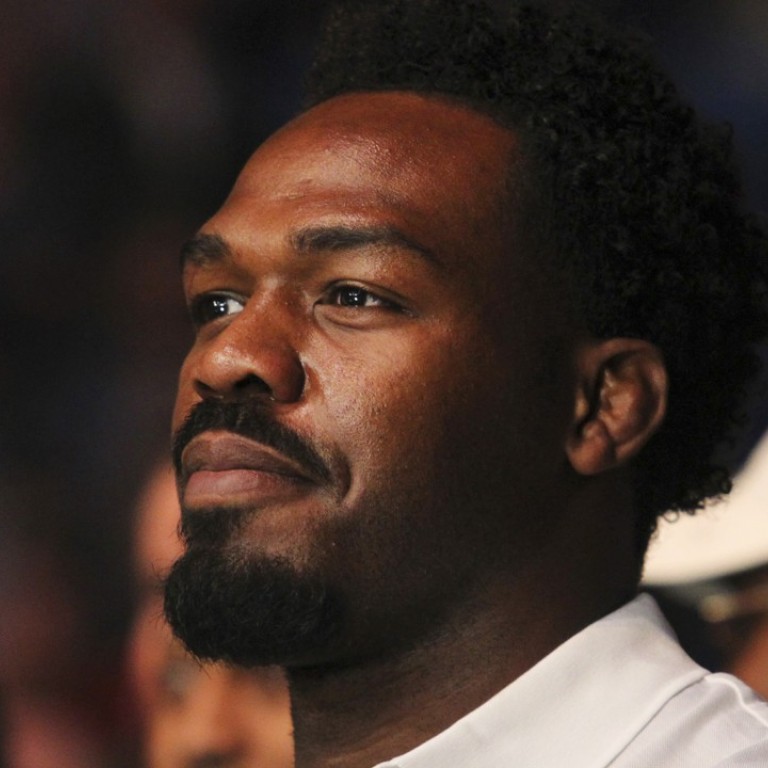
Jon Jones the ‘snitch’ cleared by Usada in time for Madison Square Garden – it’s a shameful double standard from UFC
Jones’ drug suspension reduced to just 15 months for giving ‘substantial assistance’ to anti-doping authorities, which hasn’t gone down well with fight fans
Surprise, surprise, Jon Jones has got away with it again after the US Anti-Doping Agency handed him a reduced 15-month ban.
Stripped of the light heavyweight title he took from Daniel Cormier last July after testing positive for Turanibol, Jones could be back in action as early as UFC 230 at Madison Square Garden on November 4.
He was facing the possibility of a four-year ban from mixed martial arts, for what was his second failed drug test, having tested positive for two banned substances before his first scheduled rematch with Cormier at UFC 200 in July 2015.
But having got off lightly with slaps on the wrist for driving under the influence in 2012, testing positive for cocaine (which is not banned out-of-competition by the World Anti-Doping Agency) in January 2015, and a hit-and-run incident in April 2015, perhaps we should have seen this coming.
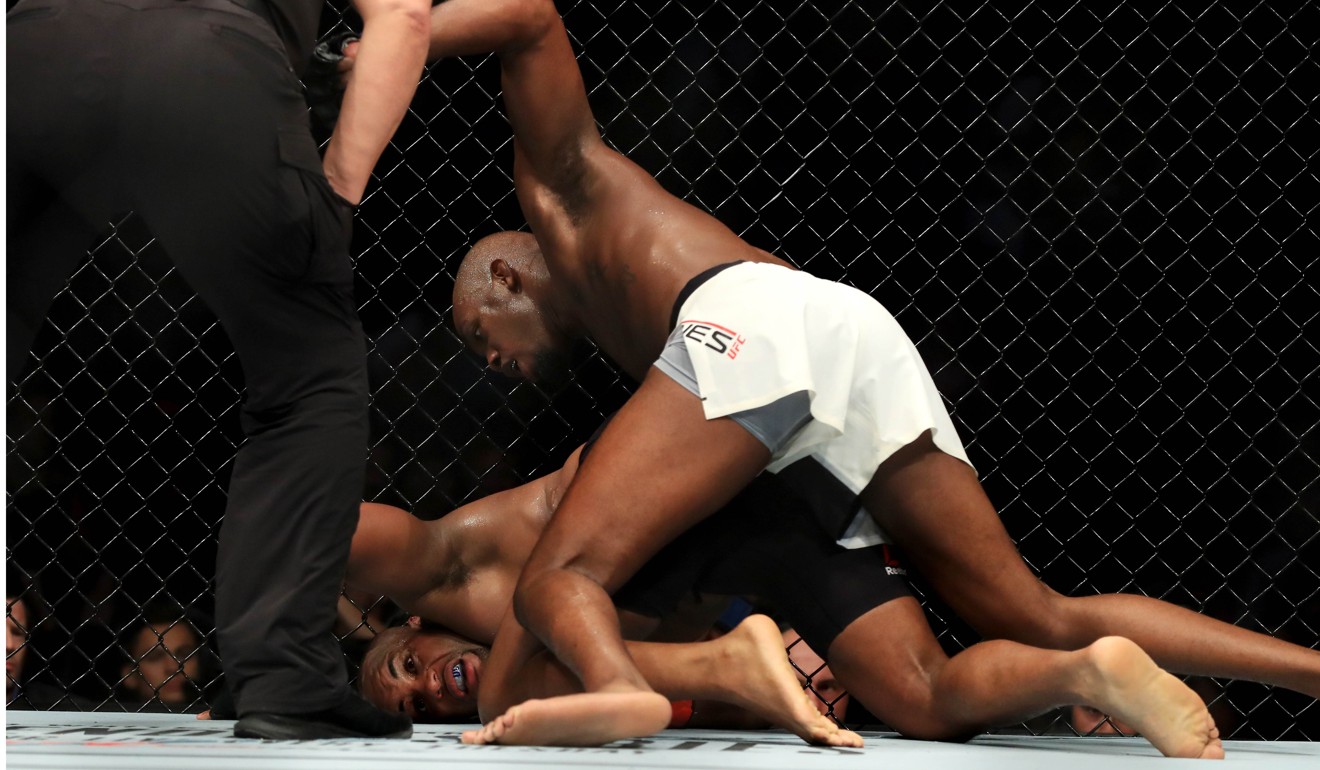
It seems he managed to wriggle his way out this time by providing “substantial assistance” in helping Usada catch another potential drugs cheat, as the independent arbitration ruling points out.
That shaved a hefty 30 months off his suspension, and suggests Usada rolled Jones up at another fighter, coach, supplier or a combination of the three.
Predictably, Jones has been subjected to a barrage of trolling on social media. “Not only is @jonjones a drug cheat, dude is also a snitch,” wrote one Twitter user, summing up the abuse.
Usada CEO Travis Tygart had fought for an 18-month suspension, but accepted the arbitrator’s decision to take off another three months based on the circumstances of his failed test.
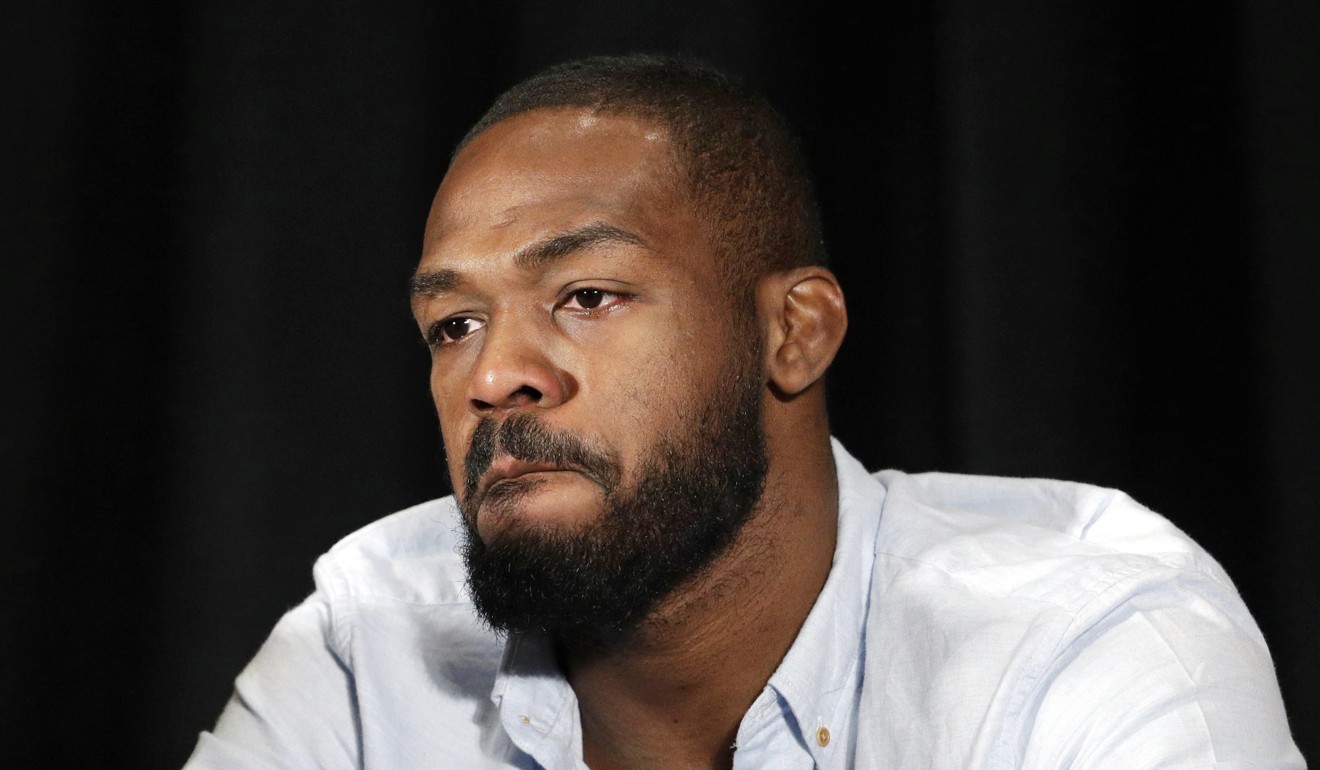
It is seemingly the first time a fighter has gone the “informant” route and made use of section 10.6.1.1 of the UFC-Usada policy, which offers reduced suspensions for helping Usada catch other drugs cheats.
We really should have seen this coming, though, if an interview Jones gave in 2009 is anything to go by.
“I was always the kid who snitched on the kids who had pot ... I was kind of just a snitch,” said Jones, then just 22 and preparing for “The Ultimate Fighter 10 Finale”.
Now 31, Jones is considered one of the greatest pound-for-pound fighters in history, and UFC president Dana White knows just how much of a draw “Jonny Bones” is.
In an era where the UFC is thin on genuine stars, with Ronda Rousey gone and Conor McGregor an erratic liability, the 860,000 PPV buys that Cormier-Jones II brought in showed Jones’ financial worth.
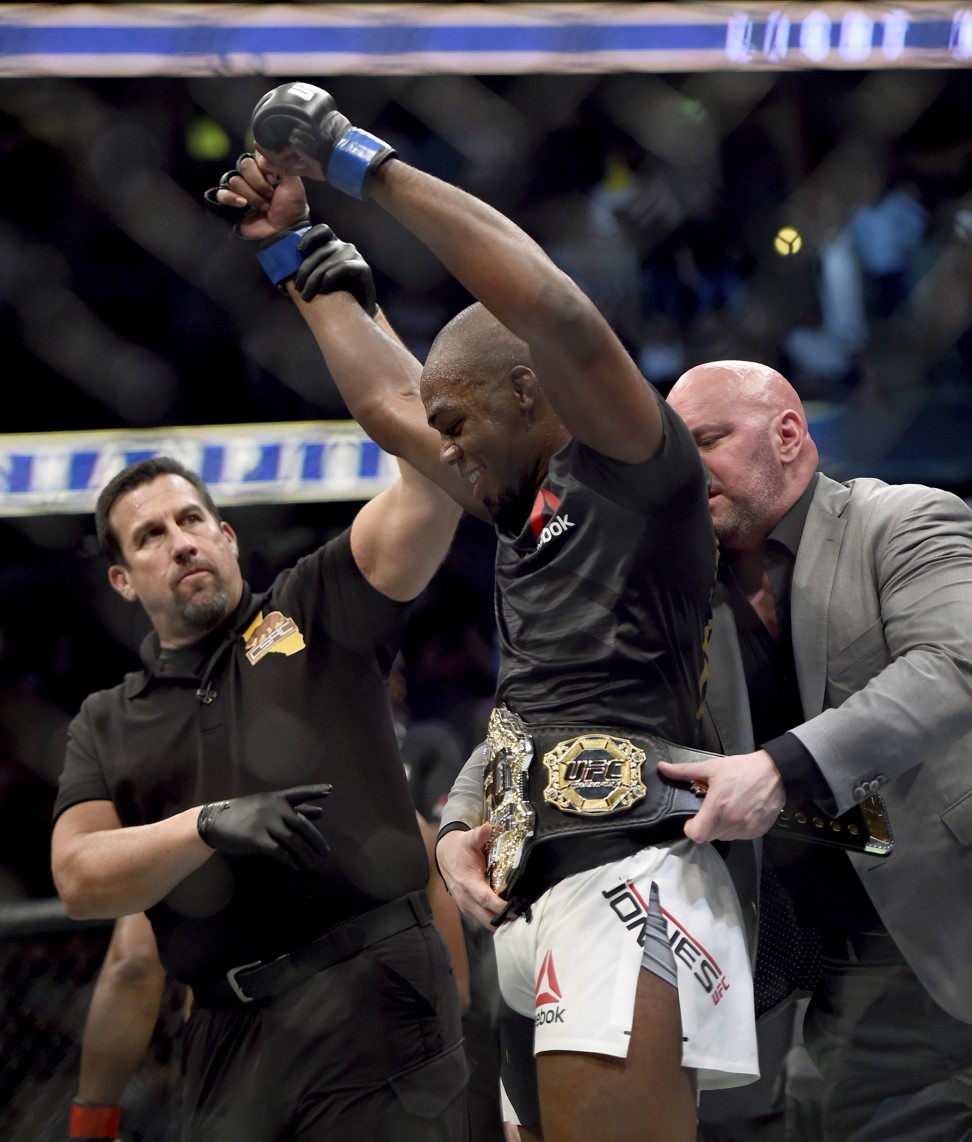
“The arbitrator found that Jones never intentionally or knowingly took steroids and the result of the positive test was the result of a contaminated substance,” White said in a statement to ESPN’s Brett Okamoto.
“The science completely supports that finding. The science doesn’t lie so I look forward to getting him back early next year.”
Of course he does. And it’s no coincidence Brock Lesnar turned up at WWE’s “Hell in a Cell” PPV on Sunday looking shredded and lean, suggesting a mega-money fight between the former UFC heavyweight champion and Jones could be on the cards.
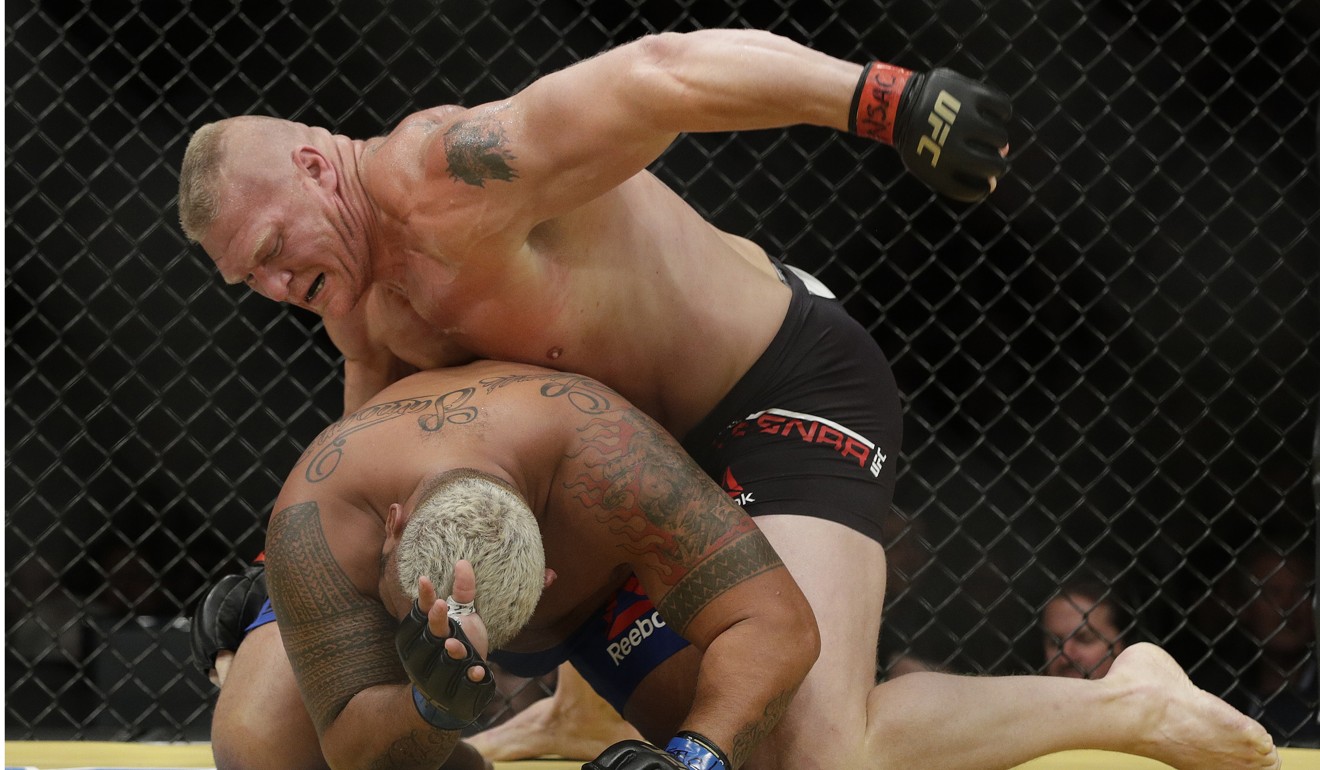
The possibility of a Cormier-Jones trilogy fight is also tantalising, but the dual light-heavyweight and heavyweight champ seemed to take a dim view of Jones’ reprieve.
“I have bosses in the back and I’m talking about this guy because I have to,” Cormier said on UFC Tonight on Fox, for whom he also works as an analyst and commentator.
“Here’s the deal. When it comes to Usada, they can’t come to my house anymore at 6am. I mean, what’s the point? They’ve been to my house 15 times. Enough. Usada, don’t come to my house anymore. You don’t need to. I’m not going to fail a test. I’m not going to make any mistakes.
“[I’ve been tested] 70 times since I started wrestling internationally and I’ve never made a mistake. It’s not that hard.”
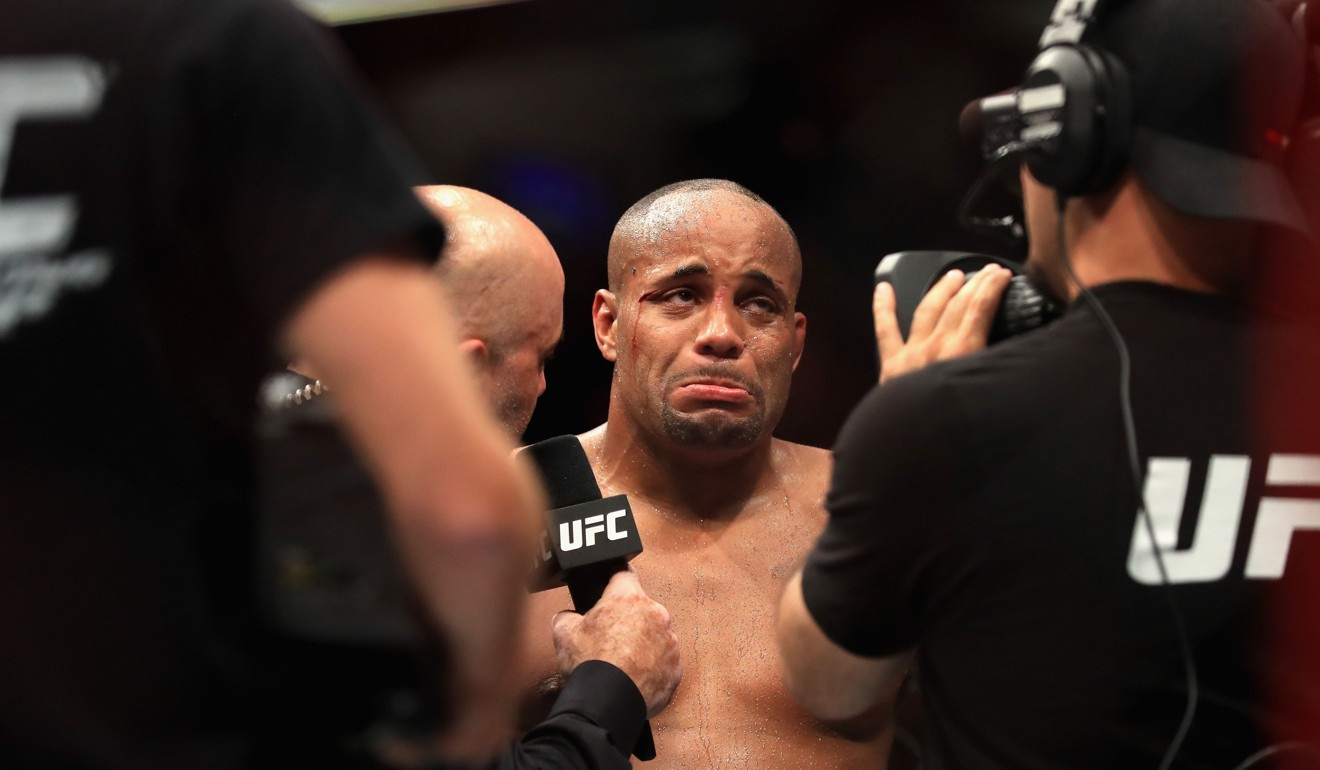
Spare a thought for “Filthy” Tom Lawlor, who was released from his UFC contract in August two months before his two-year suspension was set to end.
Lawlor tested positive for a low concentration of banned substance Ostarine. Like Jones, Lawlor insisted he had not knowingly taken anything, but couldn’t provide an explanation.
“You ever hear people say ‘MMA is fake’ or ‘UFC is fixed’? This Jon Jones s*** is what they mean, it’s not the outcomes but the idea of ‘sport’ itself that is fixed. Money rules all. What a joke,” Lawlor tweeted.
Not that Jones will care. He has maintained his innocence and was quickly thanking his fans for standing by him “during the toughest stretch of my life”.
“Greatness is what I’m chasing and the path to reclaiming my throne is now officially open,” Jones added in an Instagram post.
Jones walking back into a top spot will set a poor example, given the arbitration award also noted he was still using cocaine before and after testing positive for Turanibol. He later checked into rehab for a month, per the award.
“I was just down for people doing the right thing,” Jones added in that 2009 interview. “My parents kind of raised me to be a good guy. I’ve always been down for the good side, I guess.”
But it seems Jon Jones and “doing the right thing” do not got hand in hand.

